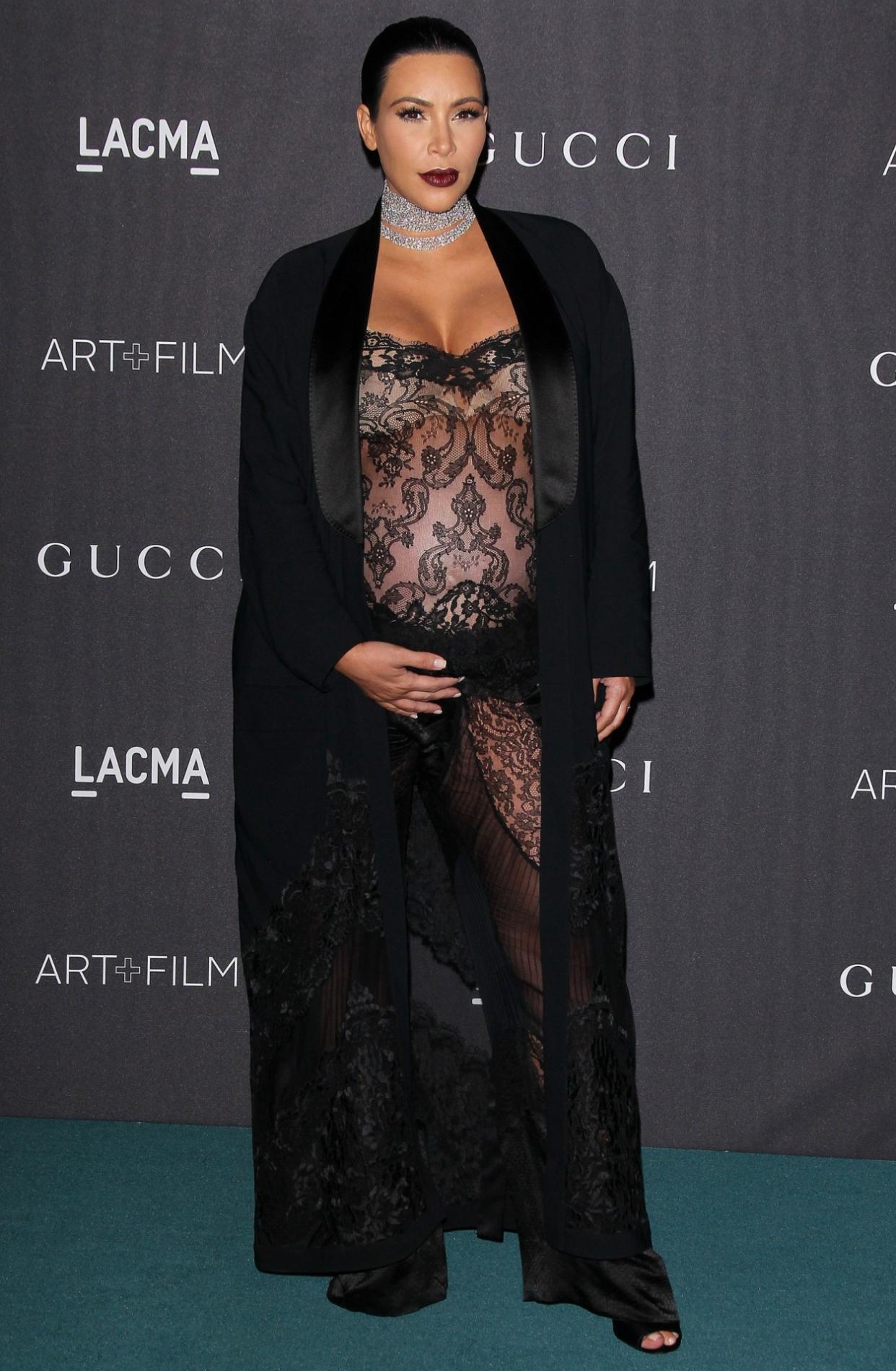Kim K. on Eating Placenta: 'What Do I Have to Lose?'

Kim Kardashian shared on her blog post on Monday, Dec. 14, that she is eating her placenta after giving birth to her second child, Saint West.
“So, I’m really not this holistic person or someone who would have ever considered eating my placenta,” Kardashian, 35, wrote in her post titled “Eating My Placenta.”
STORY: Why a ‘Girls’ Star Ate Her Placenta
She added: “And when I say ‘eat my placenta,’ I mean that I’m having it freeze-dried and made into a pill form—not actually fry it like a steak and eat it (which some people do, BTW).”
Kardashian isn’t the only celebrity touting eating placenta either by ingesting it in its natural form or having it made into pills. Actress Gaby Hoffman, who stars on HBO’s “Girls,” told Yahoo Style that she ate bits of placenta in her shakes after the birth of her daughter last year. “My doula cut it up in 20 pieces and I just made smoothies,” she said. “You mix it with strawberries, bananas, tons of fruit, you can’t taste it! But you can feel it.”
Actresses Alicia Silverstone and January Jones have also shared publicly how much they liked the effect of taking placenta pills post-partum, which has been linked to claims that it helps boost milk production and reduce post-partum depression. A 2013 survey of 189 new mothers published in journal Ecology of Food and Nutrition found that 76 percent had a “positive” experience with eating their placenta and that the majority said they would do it again after future births. The only reported downside was the taste or smell.
But are there any proven benefits to ingesting placenta post-birth? In a nutshell, no. “There’s no scientific-based evidence to support that there are any benefits,” James Betoni, MD, a high-risk maternal and fetal medicine specialist in Boise, Idaho, tells Yahoo Parenting.
Researchers at Northwestern University School of Medicine looked at 10 published studies on the practice and found no data to back up the claims that eating placenta either raw, cooked, or in pill form protects against postpartum depression, helps with lactation, increases energy, reduces post-delivery pain, promotes skin elasticity, boosts maternal bonding, or replenishes iron stores in the body, according to The Eunice Kennedy Shriver National Institute of Child Health and Human Development.
What’s more, the researchers also pointed out that there are no studies focused on whether eating placenta carries any potential health risks. There are also no regulations in place for how placenta is stored, prepared, or what amount is safe to consume.
STORY: Inside Hayden Panettiere’s Treatment for Postpartum Depression
Although the placenta provides the fetus with nutrients and oxygen, it also acts as filter, notes Betoni. “It’s supposed to filter the toxins and protect that baby,” he says. “No one knows if it could cause harm.”
Bottom line: “There’s no evidence that there’s any benefit at all or whether it could be harmful,” says Betoni. “But if you want to do it, have at it.”
(Photo: Corbis Images)
Please follow @YahooParenting on Facebook, Twitter, Instagram, and Pinterest. Have an interesting story to share about your family? Email us at YParenting (at) Yahoo.com.

